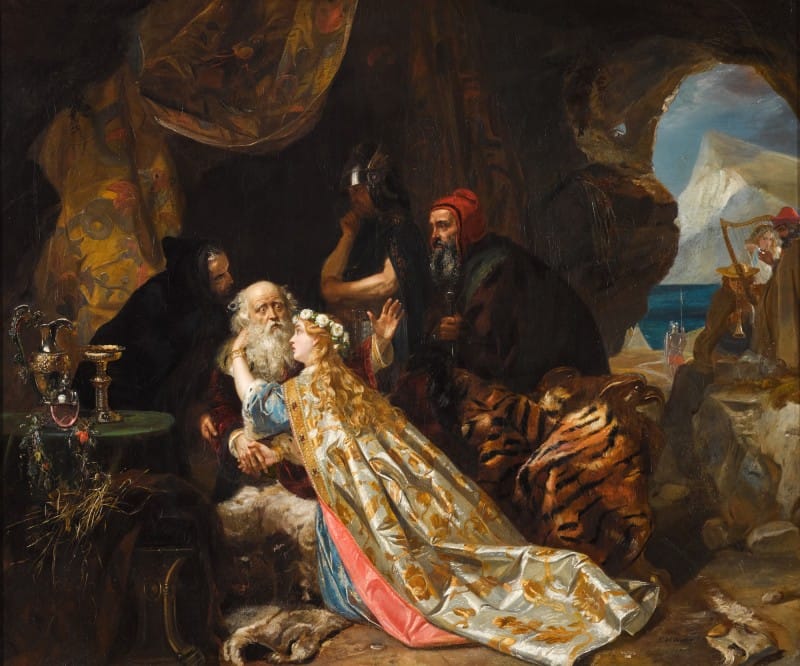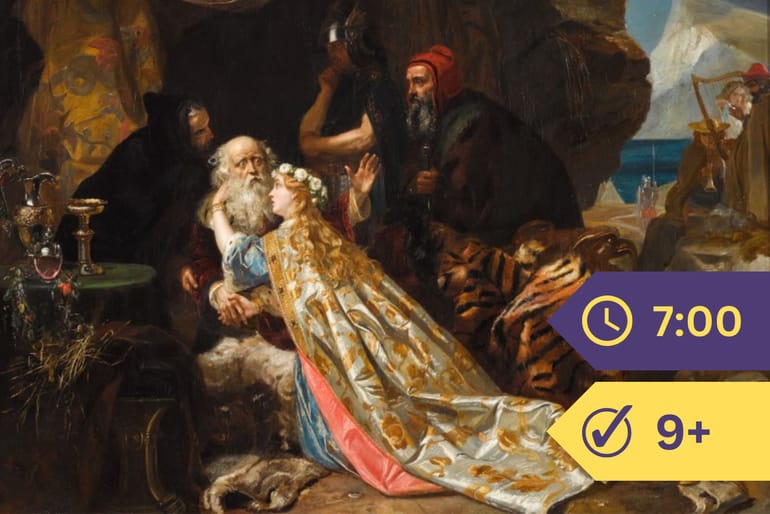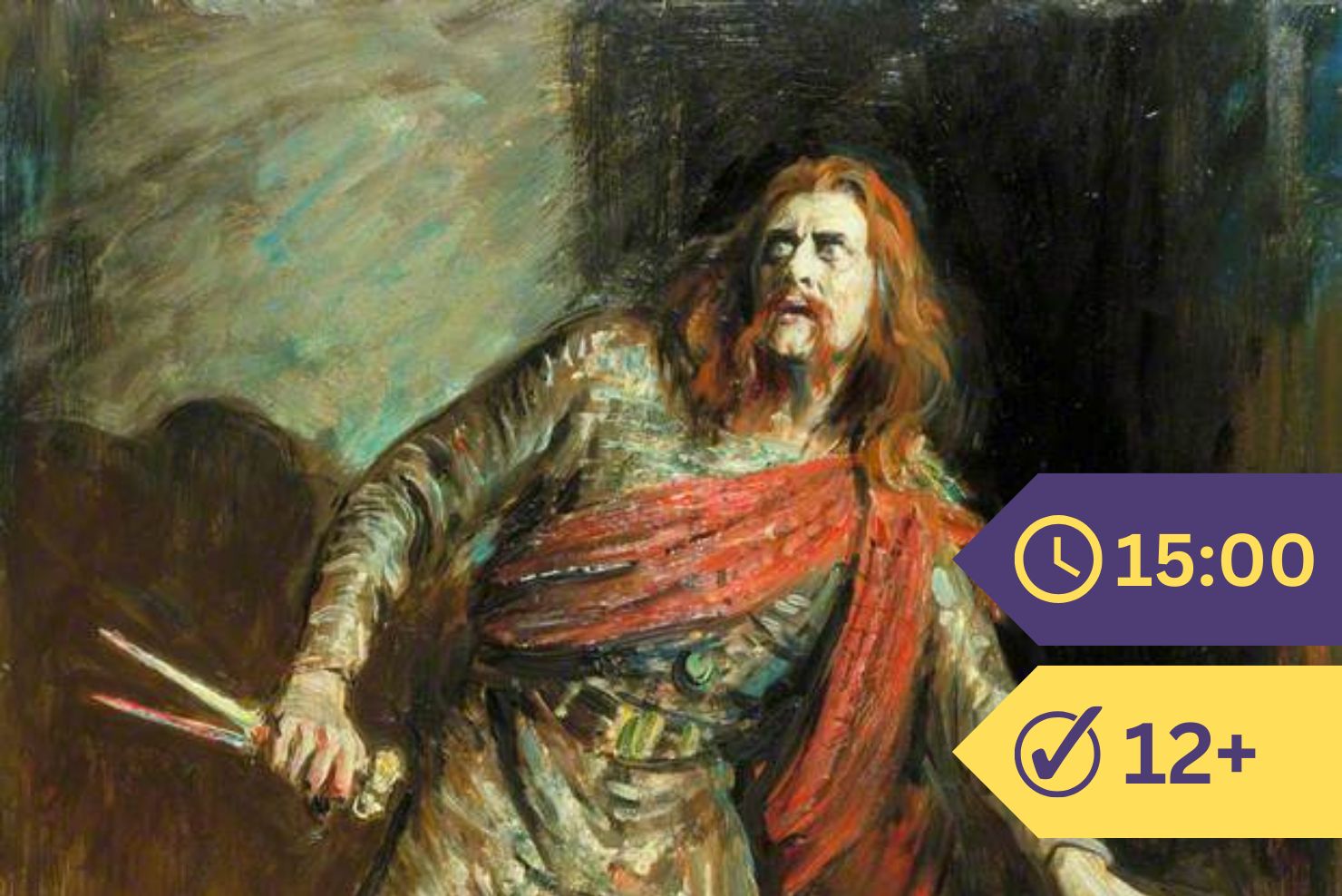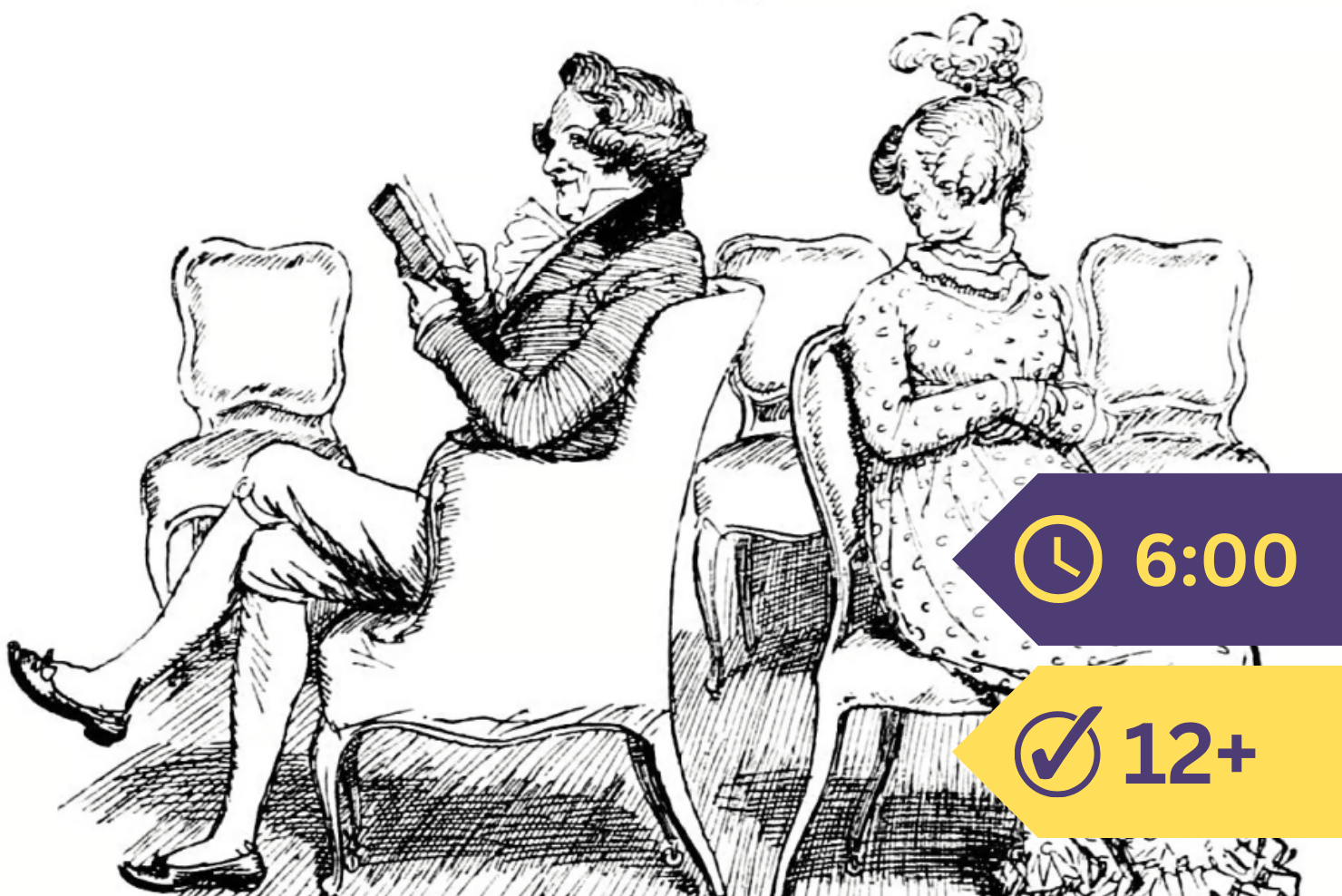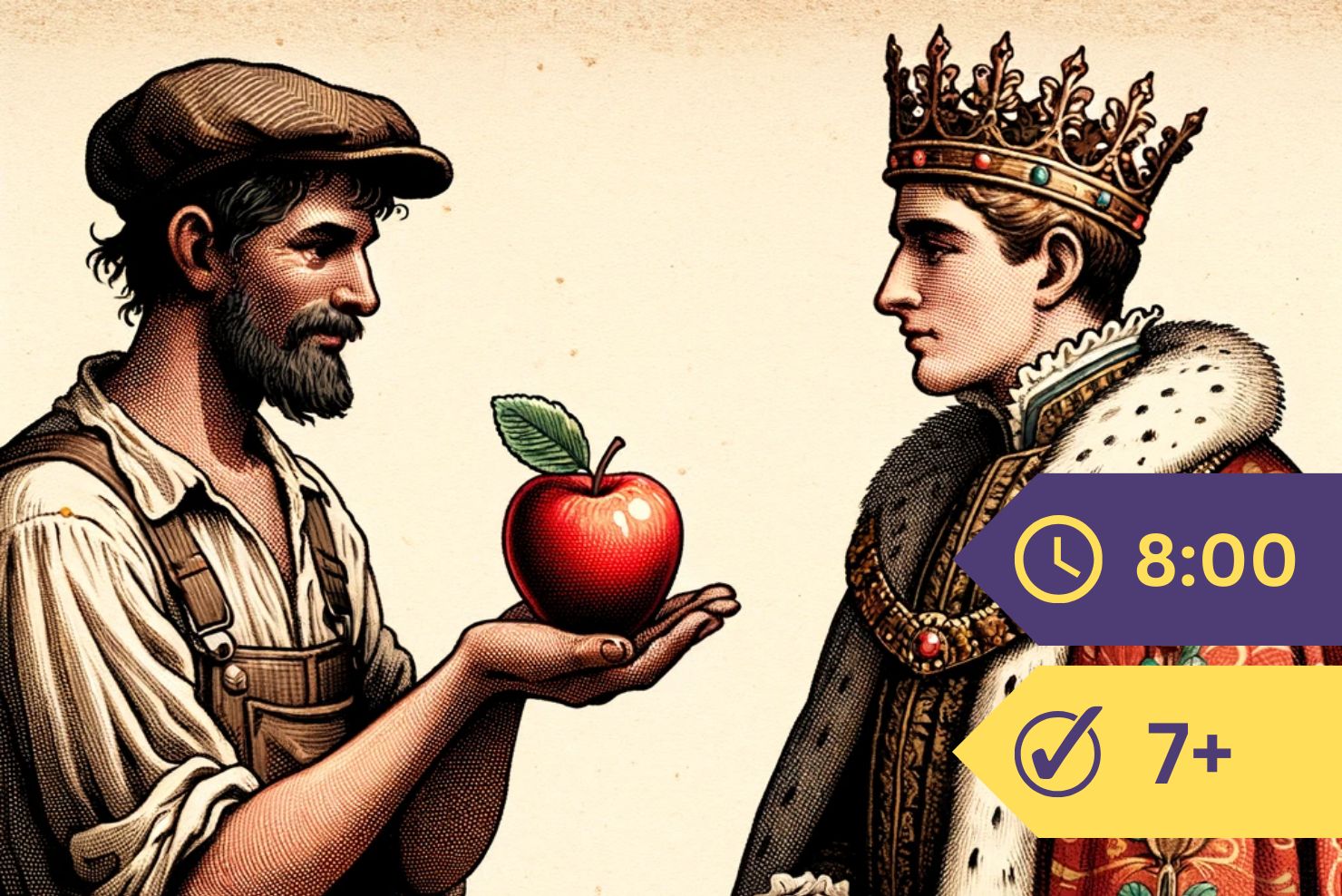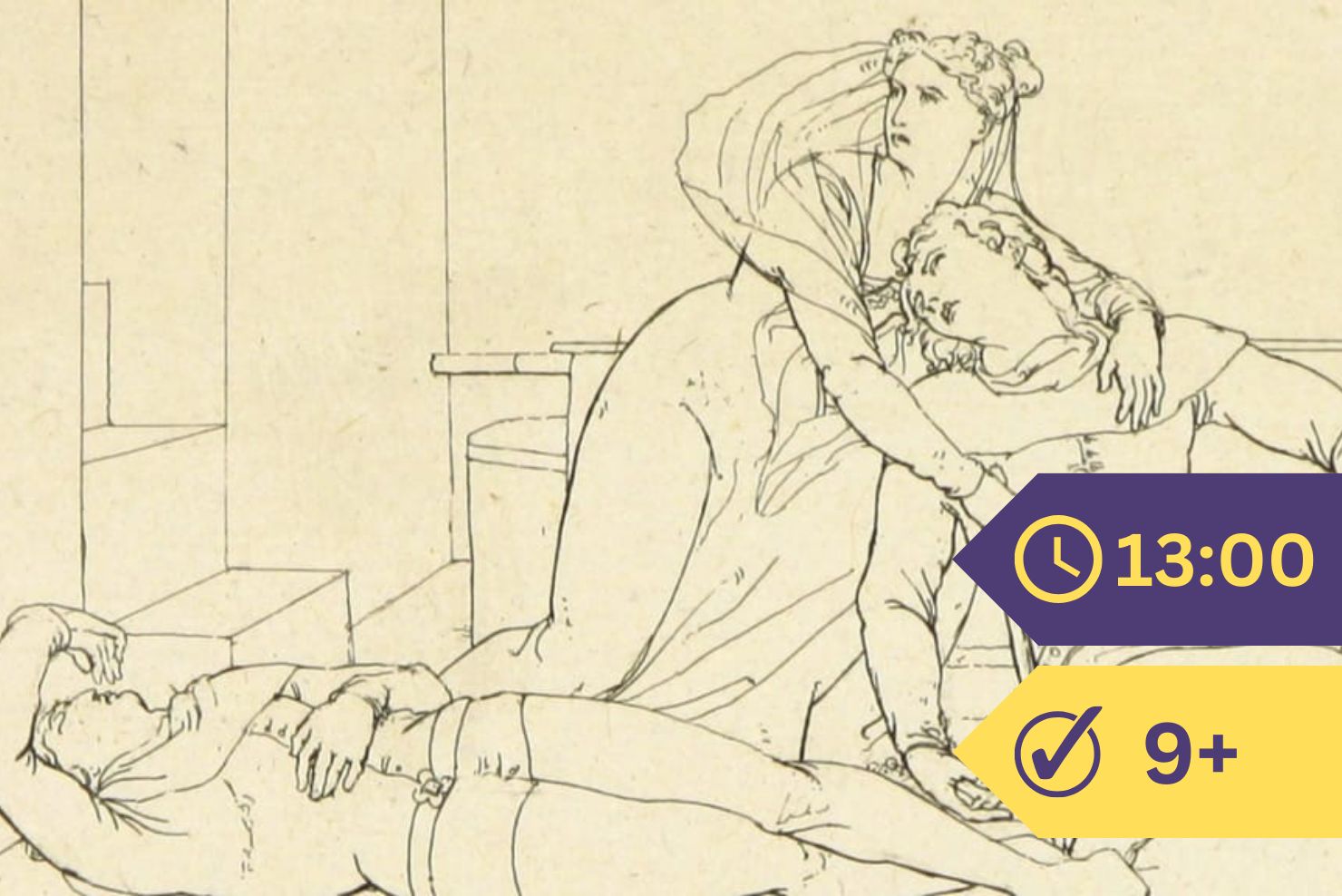King Lear was old and tired. He was weary of the affairs of his kingdom and wished only to spend his old age with his three daughters. Two of his daughters were married to the Dukes of Albany and Cornwall. The Duke of Burgundy and the King of France were both suitors for the hand of Cordelia, his youngest daughter. Lear called his three daughters together and told them that he planned to divide his kingdom among them. “But first,” he said, “I would like to know how much you love me.”
Goneril, who was actually a very bad woman and did not love her father at all, said that she loved him more than words could express. She loved him more than space or freedom. She also loved him more than life, health, beauty, and honor.
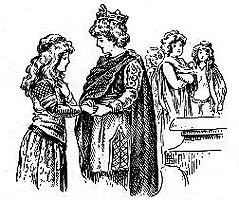
“I love you as much as my sister, but even more,” said Regan, “because I care only for the love and honor of my father.”
Lear was very pleased with Regan’s words but turned to his youngest daughter, Cordelia. “Now, you are our great joy,” he said, “the best part of my kingdom I have kept for you. What do you have to say?”
“Nothing, my lord,” Cordelia replied.
“Nothing will come of nothing. Speak again,” said the king.
And Cordelia answered, “I love your Majesty according to my duty, no more and no less.”
She said this because she disliked the way her sisters showed their love while they never really showed the proper sense of duty towards their old father. “I am your daughter,” she continued, “and you have raised and loved me. Now, I return those duties as good and fitting, I obey you, I love you, and honor you the most.”
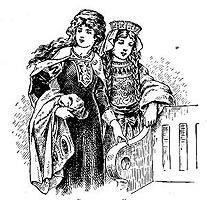
Lear, who loved Cordelia the most, was disappointed. He had wanted her to give more extravagant expressions of love than her sisters. So he said, “Go away and be a stranger to my heart and to me forever.”
The Earl of Kent, one of Lear’s favorite servants, tried to speak up for Cordelia, but Lear would not listen. He divided the kingdom between Goneril and Regan, telling them that he would keep only a hundred knights for himself and would live with each daughter in turn. When the Duke of Burgundy heard that Cordelia would not receive any part of the kingdom, he broke off his courtship with her.
But the King of France was wiser and said, “King, your daughter without a dowry is a queen to us and to our fair France.”
“Take her, take her,” said the king, “for I never want to see her face again.”
So Cordelia became queen of France, and the Earl of Kent was banished from the kingdom because he had tried to speak up for her. The king now went to stay with his daughter Goneril, who had received everything from her father that he had to give. But she now even begrudged him the hundred knights he had reserved for himself. She was harsh, rude, and disobedient, and her servants refused to obey his orders. They simply ignored him.
The Earl of Kent, when he was banished, pretended to go to another country, but instead he returned in disguise as a servant and took service with the king. The king now had two friends: the Earl of Kent, whom he knew only as his servant, and his court jester, who was always faithful to him. Goneril told her father that her knights would serve her court and told him to keep only a few old men with him, men like himself.
“My retinue consists of men who know all aspects of their duty,” said Lear. “Goneril, I will not trouble you further, I depart and leave a daughter behind.”
Once his horses were saddled, he, along with his followers, set out for Regan’s castle. But Regan, who had previously outdone her sister in faithful devotion to the king, now seemed to outdo her in the least faithful devotion. She said that fifty knights were already too many for him, and Goneril, who had rushed there to prevent Regan from having more success with the king, said that even five knights were too many. After realizing that both of his daughters truly wanted to drive him away, Lear left them.
It was a wild and stormy night, and he wandered over the heath, half-mad with despair, with no other companion than the court jester. But soon he met his servant, the good Earl of Kent, again. The earl finally convinced him to spend the night in a wretched hut. At daybreak, the Earl of Kent brought his royal master to Dover and hurried to the court of France to tell Cordelia what had happened.
Cordelia’s husband gave her an army, and with it, she arrived in Dover. There, she found poor King Lear, wandering the fields, dressed in ragged garments with a crown of nettles and weeds on his head. They brought him back and fed and clothed him. Cordelia came to him and kissed him.
“You must have patience with me,” said Lear. “Could you forget and forgive me? I am old and foolish.”
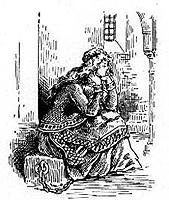
And now he finally knew which of his children loved him the most and who was truly worthy of his love.
Goneril and Regan combined their armies to fight against Cordelia’s army, and they were successful. Cordelia and her father were thrown into prison. When Goneril’s husband, the Duke of Albany, who was a good man and did not know how bad his wife was, heard the truth, Goneril took her own life. A while before, out of jealousy, she had already given her sister Regan deadly poison.
They had also arranged for Cordelia to be hanged in the prison, and although the Duke of Albany immediately sent messengers to prevent it, it was too late. The old king stumbled into the tent of the Duke of Albany, with the body of his beloved daughter Cordelia in his arms.
And shortly after, with loving words on his lips, he fell down, still holding her in his arms. And he also died.
